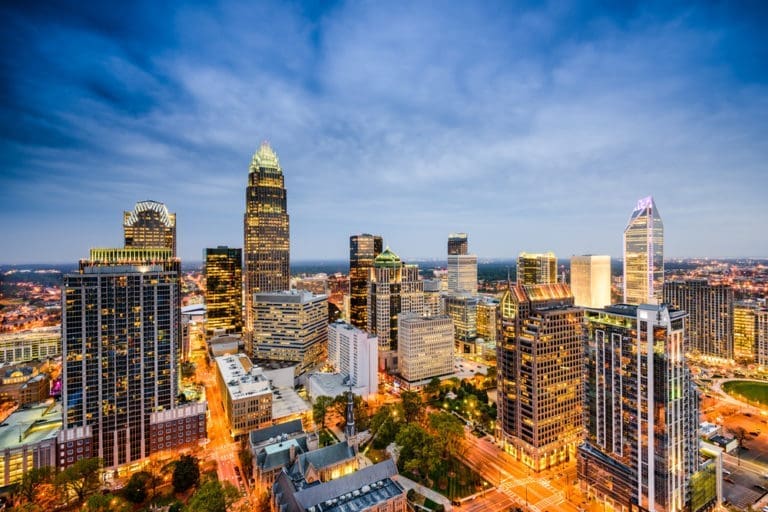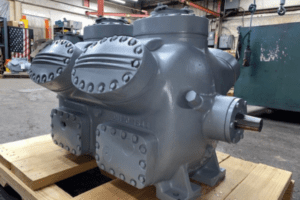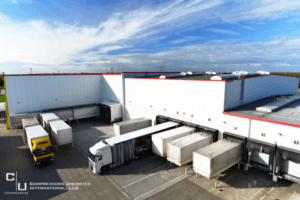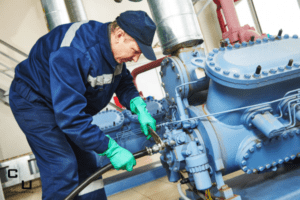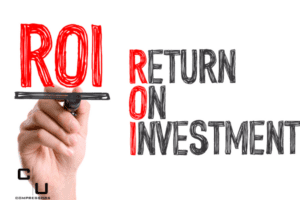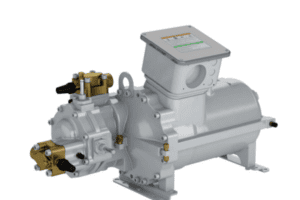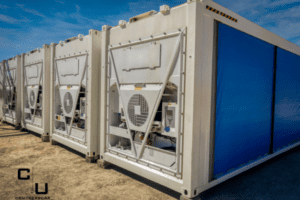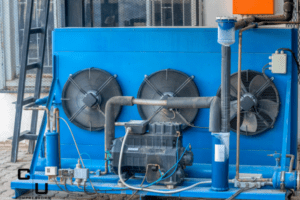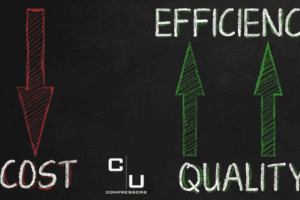Energy efficiency is a major and growing concern for most facilities managers in the United States. Improving overall energy efficiency reduces the ownership costs of all major equipment.
Greater efficiency can also save you money on taxes in the form of carbon tax. Carbon tax is an offset mechanism intended to discourage the burning of large volumes of fossil fuel. The higher your efficiency, the lower your overall environmental impact and your tax.
Most companies don’t have the option of retrofitting from the ground up or constructing an all-new building. When commercial spaces are selected, they are often chosen on the basis of their location and rent, while industrial facilities are especially suited to the job at hand.
Luckily, drastic measures like these aren’t necessary to improve efficiency.
There are many different ways to raise efficiency at the average commercial or industrial facility. The key is understanding the options and choosing the one that is most likely to be cost-effective.
Let’s take a look at some of the best options available:
1. Start With Benchmarking and Measuring Consumption
Finding out where you are today is always the first step in any cost savings project.
Your measurements serve as a benchmark you can use to gauge progress and make informed choices about future equipment purchases. In most cases, you can start by using your existing energy bills to recognize seasonal and annual trends in consumption.
More often than not, your industrial HVAC system will be the largest energy consumer on your property. So, it is vital to recognize spikes in costs that correlate with periods of cold or high heat. If there is a general trend toward more consumption, however, it points to a potential problem.
Likewise, spikes in consumption that immediately follow the installation of new equipment should be investigated. Consulting the documentation or a qualified service team will let you know if your equipment is using more electricity than expected. This can be a problem with the individual device or it can suggest a larger issue with the electrical system.
2. Focus on the Exterior Envelope
The building’s outer envelope must be as airtight as possible. In both warm and cool climates, insulation reduces energy loss and improves airflow. This helps you stay cooler in the summer and warmer in the winter while controlling your overall HVAC usage.
Just like in a residence, a commercial or industrial-grade HVAC system draws the most power when it first kicks on. Insulation moderates the temperature so you can cut down on daily cycles and overall cycle time. Seal up cracks in the exterior and consider replacing older windows with modern dual pane windows, which use an added layer of inert gasses to curb energy loss.
3. Manage Your Ventilation System
Older buildings tend to have poor ventilation overall, which causes your HVAC and air conditioner unit to work harder. One of the simplest ways to keep your ventilation up-to-date is to ensure that all air filters are being replaced on a regular basis. That alone can account for a 20% increase in system efficiency, making a substantial impact on energy use.
If the ventilation system is clean and modern but you’re still seeing unacceptable energy usage, consider a programmable thermostat. These use an array of sophisticated sensors for even more accurate HVAC performance. They can be effective in helping you maximize the savings you get from your exterior envelope and ventilation upgrades.
4. Ensure Your Compressors Are Up to The Job
Many businesses rely on a variety of commercial compressors for refrigeration and air conditioning. For example, a grocery store could require multiple compressors like the Copeland 3DS1500 or the larger Carrier 5H80. Each one has the potential to add significant costs, especially as they get older. Refrigeration systems should be maintained carefully with special attention to compressors nearing the ten-year mark.
While Energy Star certified compressors offer the best performance, any fully remanufactured compressor that’s suited for your application can deliver a valuable savings. They are typically priced 20%-30% lower than new OEM models while delivering the same performance. Plus, they can be delivered weeks sooner than a new model.
5. Upgrade Light Fixtures to LED Bulbs
LED light provides benefits in several distinct ways. First of all, LED bulbs use less energy than comparable incandescent or halogen bulbs. They put out much less heat, so they don’t affect the temperature of a room. They also last longer, even in extreme temperatures and conditions. Last, but not least, many people consider them more pleasant and less harsh than incandescent bulbs.
You don’t have to start over from scratch to get excellent energy performance. With targeted investments and an ongoing commitment to maintenance, you can raise the bar for your existing facility. Long-term savings really add up, and you’ll do your part to protect the environment at the same time.

